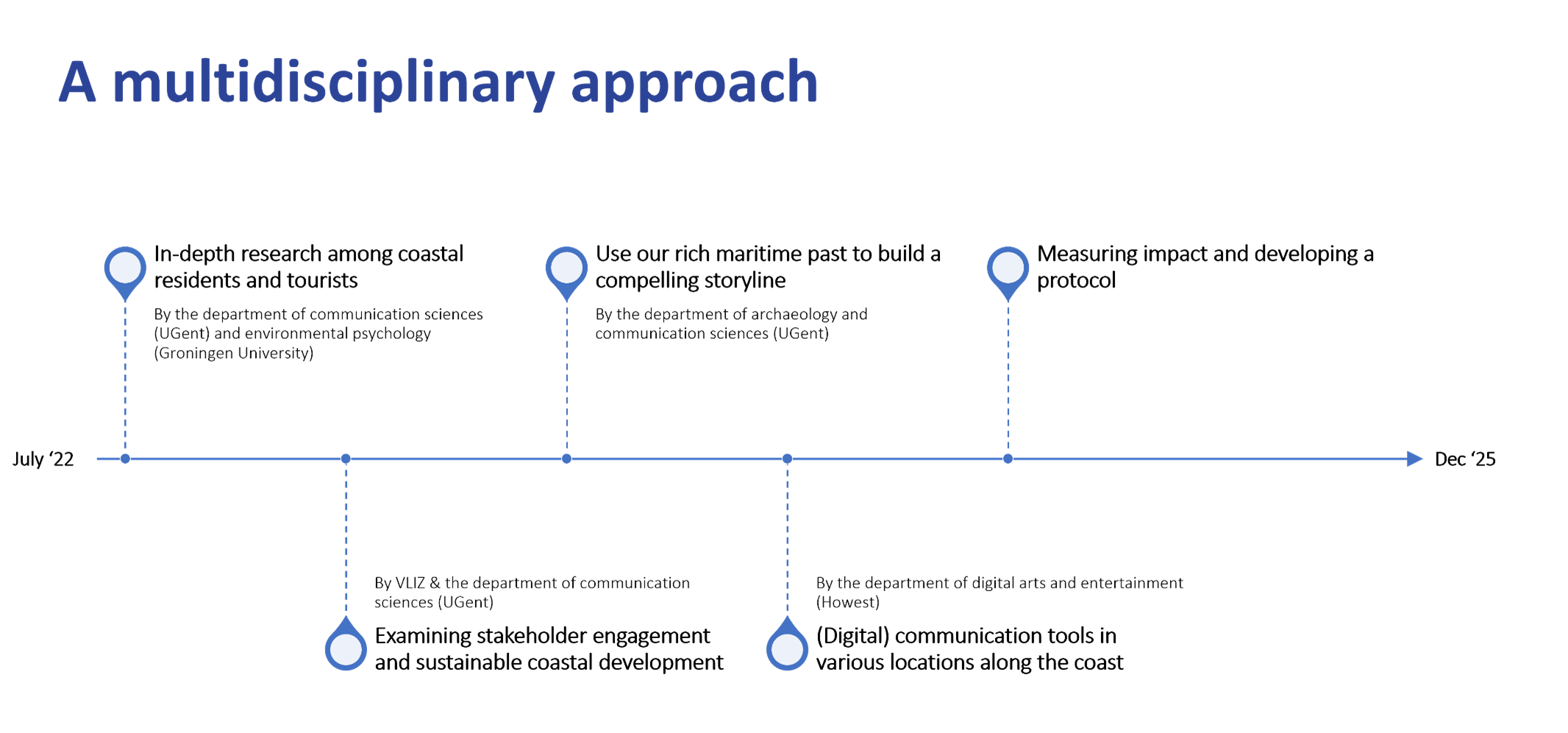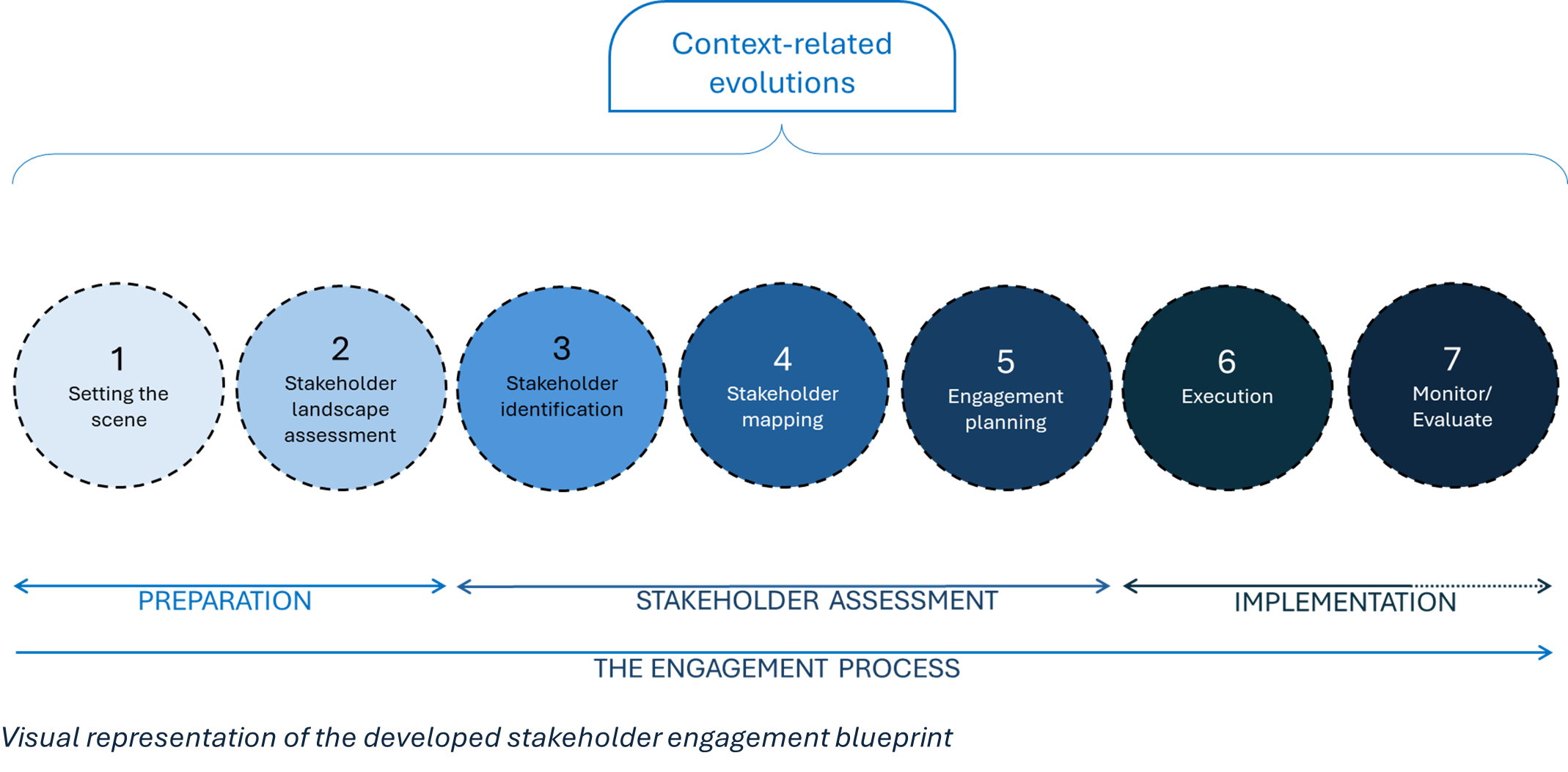Blue BALANCE
Setting the scene
As coastal regions face increasing challenges due to climate change, environmental degradation and economic pressures, public engagement has become a critical factor in driving sustainable innovation. Citizens today are more empowered than ever to voice their opinions and influence decisions on the future of their communities. Understanding the reasons behind public support or opposition to projects along the coast is essential for preventing conflicts, enhancing communication and fostering effective collaboration among all stakeholders.
To address this need, Blue BALANCE focuses on developing a social license to operate — a concept that emphasizes building trust and acceptance for sustainable activities such as environmental engineering, blue food production, eco-friendly port development and sustainable tourism. By fostering mutual understanding between citizens, policymakers and industry leaders, the project aims to create a foundation for successful coastal transitions.
Our approach is rooted in scientific rigor and interdisciplinarity. By integrating expertise from environmental psychology, communication sciences, archaeology, media studies and marine and maritime sciences, Blue BALANCE seeks to uncover the psychological drivers and barriers that shape public attitudes toward more sustainability. The outcomes of our work will guide the creation of innovative interventions — such as immersive virtual reality (VR) and augmented reality (AR) experiences — and tailored communication strategies to raise awareness and encourage collaboration across diverse groups.
A sea of values
What matters when engaging people in Belgium’s coastal past, present and sustainable future
Our aim is to dive deep into the hearts and minds of those who live at or visit the Belgian coast. A study by the UGent department of communication science aims to uncover the underlying psychological motivators, barriers and processes that drive support for sustainable coastal innovations. By exploring these psychological processes, we seek to understand what inspires individuals to engage with and champion these initiatives.
This research delves into personal values, beliefs, identities and meanings that locals and tourists attach to the North Sea and the Belgian coast as well as regional (or group) values, coastal identities and norms.
Check out the results of the survey we conducted among more than 1.000 residents and tourists of the Belgian coast, examining key potential factors influencing people’s acceptance for blue transition projects and for pro-environmental behaviour.
We are also testing the persuasive power of three strategies:
- Activating existing (1) personal (altruistic and biospheric) values and (2) regional/group values
- Activating (3) the historical coastal identity
Historical and cultural sites
Within the Blue BALANCE project, we identified interesting locations along the Flemish coast where various narratives can be linked to the sustainable transition of the region. Through an extensive geographical analysis from a historical perspective, we map both movable and immovable heritage. This includes monuments, landscapes, archaeological sites, repositories and collections, infrastructure, and equipment.
Based on this analysis, we selected locations that are suitable to serve as focal points for developing narratives. These stories not only emphasize the historical significance of the coast but also establish a direct connection to contemporary challenges and solutions. By linking these narratives to concrete sustainability goals, we aim to increase awareness and stimulate dialogue among citizens, tourists and other stakeholders.
Towards impactful stakeholder engagement in the blue economy
Stakeholder engagement aims at enhancing the sustainable transition of the Flemish coastal region through deeper involvement, transparency, and democratic accountability. This work package aims at fostering dialogue among residents, tourists, policymakers, and industrial stakeholders to develop participatory strategies that support sustainability initiatives.
The work is structured into three thematic sections:
- Coastal Backbone: Inventory and assessment of 141 participatory sustainability projects in the Flemish coastal zone, based on sustainability and participatory criteria.
- Stakeholder Engagement Continuum: Identification of key stakeholders and conducting expert interviews to gain insights into barriers and best practices for successful participation.
- Blueprint for Profound Participation: Development of a structured engagement methodology in seven steps, divided into three phases: preparation, stakeholder assessment, and implementation.
The results lead to practical guidelines for future sustainability initiatives, aimed at effective stakeholder involvement for an inclusive and resilient approach to sustainable transitions in coastal areas.
Key outcomes
- Overview of participatory processes within the Belgian Blue Economy
- Extended list of stakeholders involved in the development of our Belgian coast, ranging from industry to policymakers and civil society organizations (not publicly accessible)
- Blueprint for stakeholder engagement process (see figure below)
Case studies - Use cases
Use case 1: Spioenkop
A first use case was centred around coastal transition, with a focus on contextualising this transition by showing how our coast evolved through time. Through a case study based on the Spioenkop site in Wenduine (Belgium) we gained further insights into how historical coastal identity influences public engagement. The Spioenkop location allowed us to show a variety of elements. To illustrate the past, two time periods were selected, 300-200 b.C. and 1600 n.C., for their crucial role in the coastal evolution of this landscape. To further contextualise the changes of our coast and the influence this might have on our future, we created images suggesting possible future scenarios. We focused on the right side of the Spioenkop for this view, as the influence of the changes will be most noticeable due to the built environment on that side. The visual below is a brief showcase of the work that was done in this perspective.
More detailed information about the Spioenkop use case can be found on the website of HOWEST - DAE Research.
Use case 2: Fisher Game
The second project use case draws attention to Flemish North Sea coastal fishing and the world of blue food. DAE Research designed a fun and interactive experience focused on key Blue Balance themes. In the game, users will find themselves aboard a fishing boat in the middle of the North Sea. The experience is designed to spark reflection on their own views, and maybe even inspire conversations with family and friends. In other words, it’s plenty of (blue) food for thought!
More information about the Fisher Game
Innovative, experiential and immersive technologies of place-based heritage outreach
Blue BALANCE leverages immersive technologies to connect, educate, and consult with citizens on critical social and environmental topics. By creating engaging, interactive experiences, these tools enable users to explore key heritage sites along the Flemish coast, fostering awareness of regional identity and biospheric values. Through digital storytelling and immersive interventions, Blue BALANCE highlights historical approaches to societal challenges, encouraging dialogue among stakeholders and promoting sustainable solutions for the future.
Project partners & Advisory Board
Project partners
Advisory Board members:
- Provincie West-Vlaanderen
- Westtoer
- Toerisme Vlaanderen
- Stad Oostende
- Vayamundo Holiday Club
- Holiday Suites
- DEME NV
- Antea Group
- CAAAP
- Colruyt
- Vlaamse Visveiling
- Brevisco
- SeaScape Belgium
- IOBZ
- Port of Antwerp-Bruges
Funding & support
Final event - Coastal Parliament
During the Blue BALANCE closing event in Ostend on Friday, November 14th, we shared our insights into the psychological drivers and barriers to a successfull engagement of stakeholders in the blue economy. Participants discovered our solutions and stories to engage people in sustainable coastal innovations and learned more about future opportunities for cooperation. In an interactive workshop we discussed possibilities of giving citizens and other stakeholders a real voice in the future vision for our coast, with the ambition to develop a real 'coastal parliament. Download the plenary presentation of the closing event below (in Dutch).







